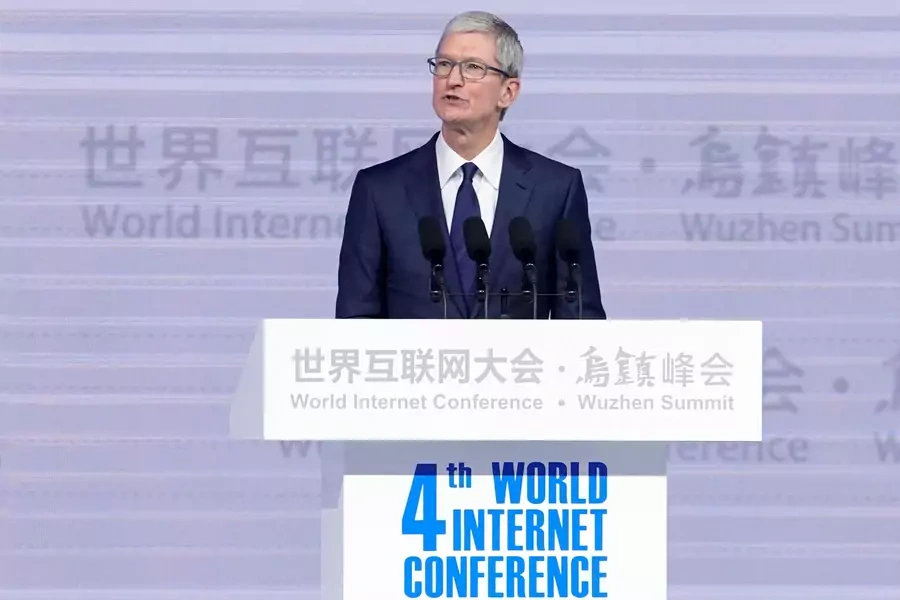Cyber Week in Review: December 8, 2017

Here is a quick round-up of this week’s technology headlines and related stories you may have missed:
1. This apple has some bruises. Top U.S. tech executives including Apple’s Tim Cook and Google’s Sundar Pichai attended China’s World Internet Conference, a government-sponsored event that Beijing uses to promote its notion of cyber sovereignty. Cook’s presence at the event, which featured prominent defenders of online controls, has drawn criticism. Many argue that Apple is turning a blind eye to Beijing's information controls in a quest for greater market share. Cook has defended his attendance, claiming “nothing ever changes from the sideline.” The presence of prominent U.S. CEOs is a marked difference from past editions of the conference, where the U.S. government dissuaded U.S. tech companies from attending. As tech firms compete for global market share, China's 1.3 billion consumers are hard to ignore.
More on:
2. This week in state-sponsored cyber operations. Two significant state-sponsored cyber operations were revealed this week. First, Israeli Firm ClearEye Cybersecurity released a report claiming that the Iranian national indicted last month for having hacked HBO and released episodes of Game of Thrones was a member of the Charming Kitten. Despite the affiliation to a suspected Iranian state-sponsored group, the HBO hacker likely acted independently, not on Tehran's orders. Second, the Citizen Lab reports that the Ethiopian government appears to have targeted journalists, activists and Ethiopian dissidents around the world using spyware provided by Cyberbit, an Israeli company. This is not the first time that Ethiopia has been caught using cyber means for surveillance. In 2015, leaked emails confirmed that Ethiopia had bought commercial spyware from HackingTeam. The new Citizen Lab report reignited concerns about the lack of global rules regulating the commercial spyware industry and their ability to sell to authoritarian governments.
3. The prospects of reforming Section 702. The House Intelligence Committee passed a bill to cleanly renew the authorization of Section 702 of the Foreign Intelligence Surveillance Act, the provision that allows intelligence agencies to monitor U.S. persons' communications with foreign nationals. There has been a debate in Congress whether to cleanly reauthorize the measure or to reform it to provide more protections to U.S. person data collected under the program, which civil liberties groups argue is constitutionally necessary. The House's clean reauthorization punts the issue to the Senate, where reauthorization--in any form--is likely to be attached to "must-pass" legislation by the end of this year. For more background on the issue, see Laura K. Donohue’s Cyber Brief, published earlier this year.
4. In case you missed it. This week, the Council on Foreign Relations held a symposium entitled Hacked Elections, Online Influence Operations, and the Threat to Democracy. It brought together policymakers, business executives, and other opinion leaders for a candid analysis of the cybersecurity threat to democracies, particularly to the election systems themselves and the subsequent attempts to shape the public debate through mass disinformation and online commentary. You can watch all of the panels and the keynote from Senate Select Committee on Intelligence Chairman Richard Burr here.
More on:
 Online Store
Online Store